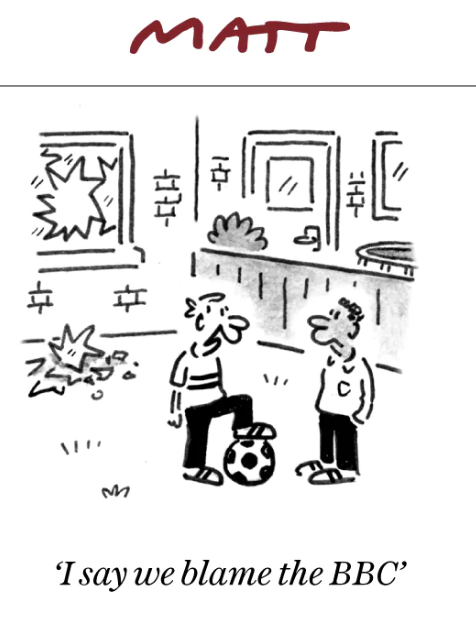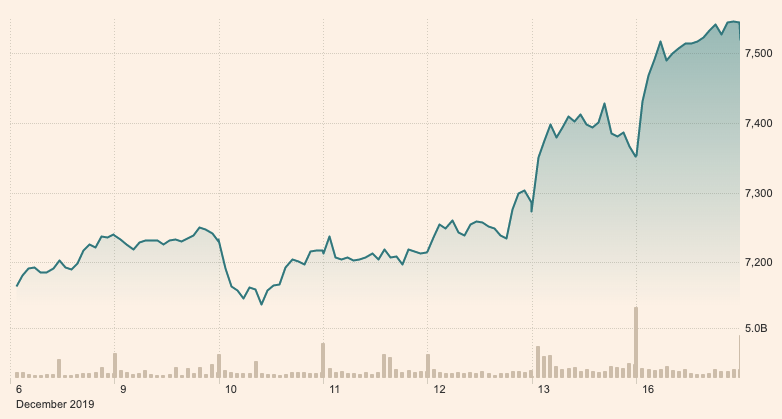- Charlotte Street Partners

- Dec 17, 2019
- 6 min read
17th December 2019
Written by Scott Reid, Associate Partner
Edited by David Gaffney, Partner
Good morning,
“We’re all Brexiteers now”. OK, I’m deliberately misquoting here. The phrase is actually adapted from a Times article back in 2002, crafted by the Labour mandarin Peter Mandelson in his defence of New Labour’s ‘Third Way’. Lord Mandelson’s words were “we’re all Thatcherites now”, a notion that was promptly rebuffed by many of the government’s backbenchers and junior ministers as they sought to heave the political compass back to the left. Controversial as it was, Mandelson had a point. Whether those who criticised the statement liked it or not, they had to accept that Britain’s political zeitgeist had shifted following more than a decade of Thatcher’s government and subsequent Tory rule. Britain, like Labour voters, had changed and it was pointless to deny it. The start to this working week has a similar feel to it, only now with Brexit as the centrifugal force. The investor community, too, seems to have solidly swung behind Brexit as the stock market gained 2.3% in yesterday’s trading, the pound surged and the business pages greedily spoke up the potential gains for Britain’s housing market after years of homeowner handwringing. Whatever your political persuasion, this is surely good news after a joyless year for the economy. Clearly we aren’t all Brexiteers now, but whether you’re a committed Corbynista or dyed-in-the-wool Scottish nationalist, it feels increasingly futile to rage against the machine that has been set in motion by this Conservative majority. Is it better for the government’s opponents of all colours to accept reality and regroup in recognition of the fact that the country looks set to change, and change utterly? As MPs and Lords are sworn into parliament today, the prime minister Boris Johnson has unveiled legislative plans to cast Britain’s departure from the transition agreement at the end of 2020 into law, (because putting an arbitrary date on something certainly worked out for those Brexit coins). Elsewhere, the FT talks up his plans for sweeping constitutional reform, including a new Act of Union designed to quell disquiet in Scotland. Lord Mandelson may have been talking to opponents inside his party, but his words hold lessons for us all. Whether we like it or not – and last week demonstrated that many of us do – we are all citizens of Boris’s Brexit Britain now.
News
The World Economic Forum has estimated that the global gender gap will not close for another hundred years. In the UK, the gap – which is measured in terms of political influence, economic gain, health and education – was ranked 21st globally, slipping from 15th position last year. Worldwide, progress in the political sphere and emergent economic roles remained slow, with women holding just 21% of ministerial positions worldwide and still underrepresented in industries such as cloud computing and AI.
Former Conservative MP Nicky Morgan will remain as culture secretary after being made a life peer in the House of Lords during a limited cabinet yesterday. Conservative MP Simon Hart becomes Secretary of State for Wales and is the only new entrant into Boris Johnson’s cabinet. The new prime minister is expected to carry out wider changes once the UK has left the EU.
The Crown Prosecution Service Inspectorate has suggested Britain's record low rape conviction rates may be due to cases being lost as a result of "under-resourced" police investigations. The CSPI described the service as "risk averse" in only bringing cases which are easy to win to court, leading to only 1,925 of 58,657 rape allegations cases being brought to trial last year - the lowest number in England and Wales since 2008.
Business and economy
Boeing has announced it will suspend the production of the 737 Max engine from January. According to Boeing sources reported to CNN, the suspension could be “just a temporary pause of the line”. Boeing had been constructing 42 of the 737 Max engines per month since March, when more than 400 jetliners in active use were grounded by the US Federal Aviation Administration. The Financial Times reports that three contenders are in the running to be chosen as the next governor of the Bank of England within a matter of days. The reported frontrunners include Minouche Shafik, London School of Economics director; Andrew Bailey, Financial Conduct Authority chief executive; and Kevin Warsh, a former US Federal Reserve official. Treasury officials are thought to favour a quick appointment so current governor Mark Carney can leave on his scheduled departure date of January 31. The government has promised that the new Treasury Select Committee will have an opportunity to vet the successful candidate ahead of a new eight-year term on February 1. (£) The Bank of England has estimated that as much as $5 billion in capital has left Hong Kong-based investment funds since April as a result of political violence. The flight of capital, accounting for around 1.25% of Hong Kong’s GDP, can be directly correlated with the Chinese government’s move to implement an extradition bill in the region. The Bank monitors Hong Kong due to the large presence UK banks HSBC and Standard Chartered have in the financial centre. Both banks passed the BoE’s stress tests, which modelled a further eight per cent fall in local GDP and a 50% fall in property prices.
Columns of note
In the Financial Times, Wolfgang Münchau suggests that the EU would be ill-advised to continue its current trade negotiation strategy with a UK led by Boris Johnson and a strong Conservative majority. Johnson has been shown to stick to his word, says Munchau, and should therefore be expected to walk away from talks if EU leaders, as early comments suggest they might, try to bounce the UK into accepting bilateral fisheries access and working directives. In The Atlantic long read, Peggy Orenstein looks at the miseducation of the American boy. The author points out that even in the #MeToo age, young American boys still face cultural indoctrination from their male peers to view women and female figures in their lives negatively, rooted in an insecurity about the male economic, cultural and social position.

Markets
What happened yesterday?
The London market closed on a high yesterday as geopolitical anxiety receded following the Conservatives’ majority general election victory and news that the first phase of a US-China trade deal had been completed. The FTSE 100 jumped 2.3% to 7,519.05 points, while the pound was also up 0.3% against the dollar at $1.33 and flat on the euro at €1.20.
Easing political uncertainty helped to offset the latest economic indicators which had UK business output falling for the second month running in December. The preliminary HIS Markit/CIPS purchasing managers’ index fell to 48.5 from 49.3 – its lowest reading for more than three years – with the services sector also contracting. On the equity markets, shares in big dollar earners British American Tobacco (+4.38%), Glencore (+3.34%) and BHP (+2.31%) were all boosted by the US trade news. Meanwhile, banks including Royal Bank of Scotland (+3.65%) and Barclays (+5.47%) profited from the Brexit bounce.
What's happening today?
Finals Pressure Tech AGMs Applied Graph. Dotdigital Sareum Schroder Income Growth Fund Tristel
Interims Smart Metering
UK Economic Announcements
(09.30) Claimant Count Rate (09.30) Unemployment Rate (11.00) CBI Industrial Trends Surveys
Intl. Economic Announcements
(10.00) Balance of Trade (EU) (13.30) Building Permits (US) (13.30) Housing Starts (US) (14.15) Industrial Production (US) (14.15) Capacity Utilisation (US)

Did you know?
The Yorkshire Dales have over 8,000km of dry stone walls, which is twice the length of the US-Mexico border and twice the weight of the Great Pyramid at Giza.
Parliamentary highlights
TODAY
House of Commons
Election of Speaker
The Father of the House will preside over the election of a Speaker. If the former Speaker, Sir Lindsay Hoyle, indicates that he is willing to be chosen as Speaker, the new Father of the House, Sir Peter Bottomley, will call a Member to move a Motion that he take the chair as Speaker.
Swearing in of Members of the House of Commons
Members will begin to swear in: first the Speaker, then the Father of the House, members of the Cabinet and Shadow Cabinet, other privy counsellors and other Ministers, then other Members by length of service.
House of Lords
Swearing in of Members of the House of Lords
Scottish Parliament
Topical Questions (If selected) Stage 3 Proceedings UEFA European Championship (Scotland) Bill Members’ Business A Menu for Change’s Report, Found Wanting TOMORROW House of Commons Swearing in of Members of the House of Commons The swearing-in of Members will continue. This is likely to be the best opportunity for new Members to take the oath or affirm. New Members should aim to swear in before the Queen’s Speech. House of Lords Swearing in of Members of the House of Lords Scottish Parliament Stage 1 Debate Female Genital Manipulation (Protection and Guidance) (Scotland) Bill Members’ Business Financial Abuse to be Recognised Fully as Coercive and Controlling Behaviour

Comments